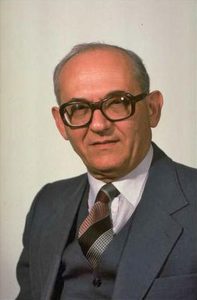 Andrea Pin is Associate Professor of Comparative Public Law, University of Padua, and Senior Fellow at the Center for the Study of Law & Religion Emory University
Andrea Pin is Associate Professor of Comparative Public Law, University of Padua, and Senior Fellow at the Center for the Study of Law & Religion Emory University
“The rule that you are to love your neighbour becomes in law, you must not injure your neighbour; and the lawyer’s question, Who is my neighbour? receives a restricted reply. You must take reasonable care to avoid acts or omissions which you can reasonably foresee would be likely to injure your neighbour. Who, then, in law, is my neighbour? The answer seems to be–persons who are so closely and directly affected by my act that I ought reasonably to have them in contemplation as being so affected when I am directing my mind to the acts or omissions which are called in question.”
This is Lord Atkins’s starting point in one of the most famous and important rulings of the House of Lords of the 20th century. Donoghoue v. Stevenson (1932) was a landmark judgment that set the limits of liability for negligence in a highly-industrialized society. Lord Atkins found it obvious to seek guidance on the issue of liability in Jesus’s oft-repeated statement that one should love her neighbor as herself. The idea of loving your neighbor was not just a moral compass—it was also a legal compass. The only contentious part was “who” had to be considered as a “neighbour.”
Lord Atkins’s phrasing speaks volumes of the relevance of religion and religious culture in the field of adjudication. He fundamentally borrowed from the Gospel—without even using the citation marks or mentioning the source—as he simply thought that the love-your-neighbor principle was an axiom in English and Scots law.
While in the West many would probably still subscribe to the idea that we should love our neighbor; nowadays more than a few would be more tempted to ground this principle on more neutral ground, rather than making a literal citation of a religious source. As John Rawls pointed out, judges are believed to be both neutral and model-reason givers, so less openly-religiously inspired statements about justice would sound more acceptable and less controversial.
The secularization of legal interpretation and adjudication is not a uniquely Western phenomenon, however, nor is it a mere product of the secularization of law. In fact, it is a process that can be detected in jurisdictions where religious legal thinking is not just acceptable but may even be required or at least encouraged. This appears to be the case in Israel and Egypt. Both countries derive their legal sources from Western legal thinking as well as distinct religious traditions that greatly value the role of law but seem to have experienced a remarkable secularization of legal thinking, albeit in different forms.
Israel’s both Jewish and democratic pedigree has been a matter of permanent controversy. As to the legal sources, one should guess that the grip of religion has increased over the decades. It was in 1980 that Israeli legislation rescinded its ties with English law and replaced it with a reference to Israel’s heritage: thereafter judges had to explore the Jewish tradition in case Israeli law did not cover the case at stake. The reference to religious normativity became even more visible in 2018 when an amendment to the 1980 legislation made Jewish law an explicit legal source of the Israeli legal system.

Menachem Elon, a prominent Jewish law scholar who then sat in the Israeli Supreme Court, welcomed the 1980 legislation as such a remarkable step that he called it the Eastern Wall, which is the direction towards which Jews address their prayers. For a while, he was right. By leveraging the 1980 legislation, Elon was able to pen a good deal of rulings that analyzed and drew from Jewish law in great detail.
The impact of the 1980 legislation did not last too long, however. The role of Jewish law as a normative pillar of the Israeli Supreme Court’s case-law subsided on a variety of fronts when he left the Court. The decline of Jewish law in courts did not stem from legal changes—the 2018 amendment even boosted its role. The main reason for its decline was the lack of religiously educated judges. Menachem Elon was probably the last great judge with a strong background in Jewish law. Once he left, judges who had received a secular legal education still made citations of Jewish law and Jewish sources in their rulings. More than once, they cited religious principles and even deployed flamboyant religious language. But these were little more than embellishments to legal arguments that did not need religious intonation in themselves, as they were self-sufficient lines of reasoning.
Egypt underwent a quite different path, but with strikingly similar results. After decades of Nasser’s strategy, which consisted of the nationalization of culture, education, and the judicial system, in 1980—the very same year that Israeli law started referring to Jewish law—the Egyptian Constitution was amended with the provision that Shari’a would be the primary source of legislation. This political move, which was intended to boost Anwar Sadat’s reputation by reinforcing the Islamic component of Egyptian constitutionalism, proved largely ineffective at the judicial level. The secularly-educated judges of the Supreme Constitutional Court diluted the meaning of the provision in three decisive ways. First, they stated that the 1980 amendment could not make earlier legislation unconstitutional. Second, the reference to Shari’a was not self-applicable, but awaited parliamentary legislation to be implemented to become effective. Finally, and most importantly, the Supreme Constitutional Court gave itself the task of interpreting Shari’a, without relying on religious authorities. As a result, the Supreme Constitutional Court became the engine of a new Shari’a-based jurisprudence‚—a body of law that leaned toward the West more often than toward Islamic sources.
The lesson to be learned from this quick and superficial snapshot of different legal systems is that a certain mentality and education play a strong role not just in giving a religious turn to secular sources, but also the reverse: religious law-illiteracy can give a secular twist to legal systems that would be theoretically more prone to take on religious narratives. It is no surprise that much controversy has surrounded the education and training of judges in developing countries and that some recent constitutions in the Middle East have not just secured a reference to Shari’a, but even that judges are selected also among religious scholars. Education often seems to matter more than texts.
